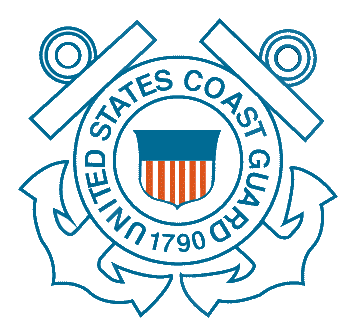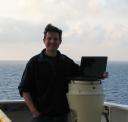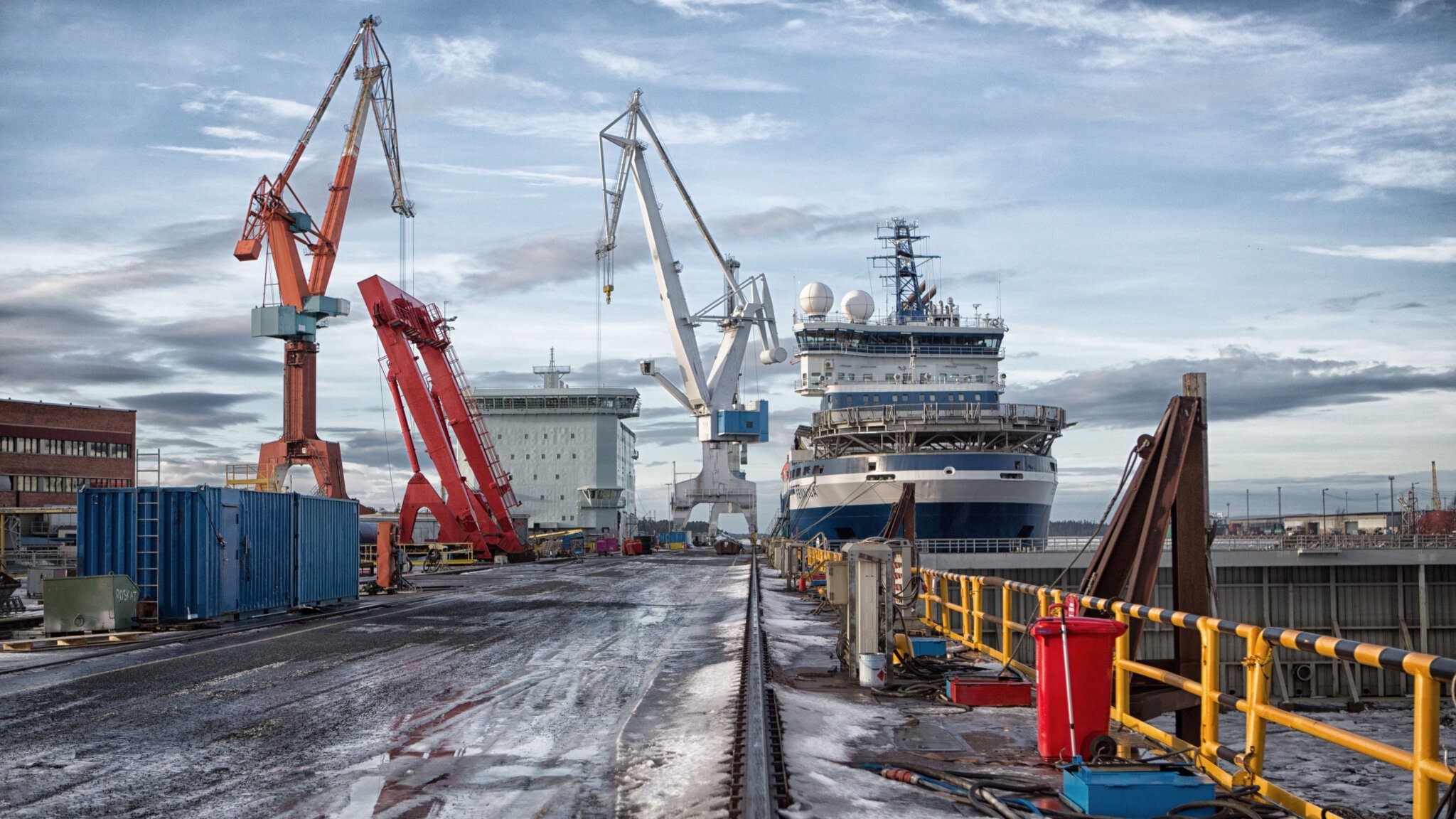Updated: April 20, 2023 (Originally published June 8, 2007)
 Our favorite maritime newsletter The Maritime Executive today responded to an article in their May 31st Newsletter that “drove more traffic than any other article ever published (by them)”. The original article titled “Shortsighted Proposal to Break up Coast Guard, if Implemented, will not Serve the Greater Good” discussed the Bush administration’s consideration of a plan to break up the Coast Guard and form a new federal agency to handle the non-security related aspects of their stated mission.
Our favorite maritime newsletter The Maritime Executive today responded to an article in their May 31st Newsletter that “drove more traffic than any other article ever published (by them)”. The original article titled “Shortsighted Proposal to Break up Coast Guard, if Implemented, will not Serve the Greater Good” discussed the Bush administration’s consideration of a plan to break up the Coast Guard and form a new federal agency to handle the non-security related aspects of their stated mission.  The magazine’s Managing Editor Joseph Keefe took a strong stand against this stating “The only good reason to consider this draconian action would be to move the Coast Guard’s regulatory functions back into the Department of Transportation where they were domiciled for so many years.”
The magazine’s Managing Editor Joseph Keefe took a strong stand against this stating “The only good reason to consider this draconian action would be to move the Coast Guard’s regulatory functions back into the Department of Transportation where they were domiciled for so many years.”
The response ( found HERE )was strong and I would like to highlight some of the comments that are of greatest personal interest to me as a professional U.S. Mariner.
An anonymous writer:
I feel your article is written from the perspective of a person who has never had to renew or otherwise deal with the Coast Guard as it exists today. The Deepwater project is only the tip of the iceberg. We have, in my over 35 years experience, gone from dealing with knowledgeable people of similar backgrounds to trying to deal with often times rude, bureaucrats who are rarely capable of doing anything correctly the first time.
I believe that Mr. Keefe’s article and response showed a thorough understanding of the subject but agree that his lack of recent dealings with licensing missed a key nerve/sense felt by mariners still in the pipe. A feeling, when walking into your local REC, that is a mixture of the anxiety experienced during a dental visit mixed with a run in with a police officer who is having a very bad day.
Captain Hoppe, a retired master & pilot, writes:
The CG can handle the offshore security, harbor security, search and rescue, aids to navigation, ice breaking, etc satisfactorily, even though onboard ship they operate at Sea Scout performance level. As Pilot aboard many CG ships, from the Campbell class cutters to the latest Ice Breaker, I have had the unpleasant experience of trying to keep those amateur ship operators from destroying everything in the harbor.
My personal experience with CG cutters is limited but having lived and worked in San Diego, taken licensing classes with US Naval Officers at Marine Safety, and having spent time at the Naval Academy I can say with conviction that in addition to the memory aids like “Red over Green, Sailing Machine” I adhere to and teach all new Mates “If it’s Grey Stay Away!”
Captain Hoppe continues:
In my youth, I was interested in joining the CG marine Inspection service. At that time, marine inspection was manned by experienced, professional seafarers, Masters and Chief Engineers. My first 4 licenses were graded by people who understood what I was saying in my detailed written responses.
The deterioration in quality and performance in CG marine inspection is disgusting. There is no professional continuity in marine Inspection and a constant turnover of CG officers. Knowledge of the functionality and operation of ships is totally lacking. When a mariner responds to a CG officer’s land lubberly questions, the response is met by a blank uncomprehending face, like trying to describe the operation of a tractor type tug to an Iowa row crop farmer.
I have had similar dealings with Inspectors but would not limit any feelings (which are softer than Capt. Hoppe’s) to the Coast Guard. I have witnessed excellent ABS inspectors in the States only to travel to Asia where our requests for attention to deficiencies (to help communicate problems to company management) were met with both blank faces AND objection. I have witnessed highly intelligent DNV inspectors being given lead inspector roles based solely on their book smarts and USCG inspectors who lacked interest in the assignment.
Most disturbingly, however, I have repeatedly experienced being written up for items of little importance while major issues that our ship’s officers had missed where not picked up by the fresh set of eyes that are too inexperienced and too focused on a clipboard.
What many auditors (especially overseas) fail to realize is that if we have made a mistake, if a safety item has be overlooked we want the write up! This is not just a job for us it is our home and I for one would take a company warning letter over a critically unsafe condition 100% of the time. We need experienced inspectors looking for our mistakes, we want experienced inspectors finding our mistakes.
If that was not enough Capt. Hoppe continues:
The license upgrade schools in the USA offer assured licensing to anybody with a warm body and a few thousand dollars. They run rote memorization programs with no real teaching. It makes no difference if the question answer is correct or not, memorize the first 5 words of the question and the approved answer is “C”. This can only happen because nobody in the CG marine inspection office knows the difference between the roundy end and the pointy end.
Having gone thought the Chief/Mate master 16 week upgrade program two thoughts are clear in my mind. 1) Very few people who should fail the courses do 2) Very few of the courses are of significant educational value. By that I mean very few taught me something I could not have learned with a 2 day online course or did not already know. That being said some schools and some instructors are better than others.
In defense of the new program is that the bar has in fact been risen. With a total of 9 modules and the allowance of only 2 retakes (the same as previous), the combined exams are significantly harder than the previous ones which is resulting in more concentration and study time by mariners. A good thing for all.
to be continued…
A big thank you to Mr. Keffe and Captain Hoppe for their honest opinions and coverage of this important topic.
The Council of American Master Mariners has posted their position on the subject HERE.
Please Post your comments to this article below or on our Maritime Forum.

John Konrad is a USCG licensed Master Mariner of Unlimited Tonnage currently working as Chief Mate aboard a 865′ ship in the Gulf of Mexico. Since graduating from SUNY Maritime College he has sailed in all 4 of the worlds oceans and reports from his ship via satellite.
Tags:
Editorial Standards · Corrections · About gCaptain

 Join The Club
Join The Club



 Our favorite maritime newsletter
Our favorite maritime newsletter  The magazine’s Managing Editor Joseph Keefe took a strong stand against this stating “The only good reason to consider this draconian action would be to move the Coast Guard’s regulatory functions back into the Department of Transportation where they were domiciled for so many years.”
The magazine’s Managing Editor Joseph Keefe took a strong stand against this stating “The only good reason to consider this draconian action would be to move the Coast Guard’s regulatory functions back into the Department of Transportation where they were domiciled for so many years.”







